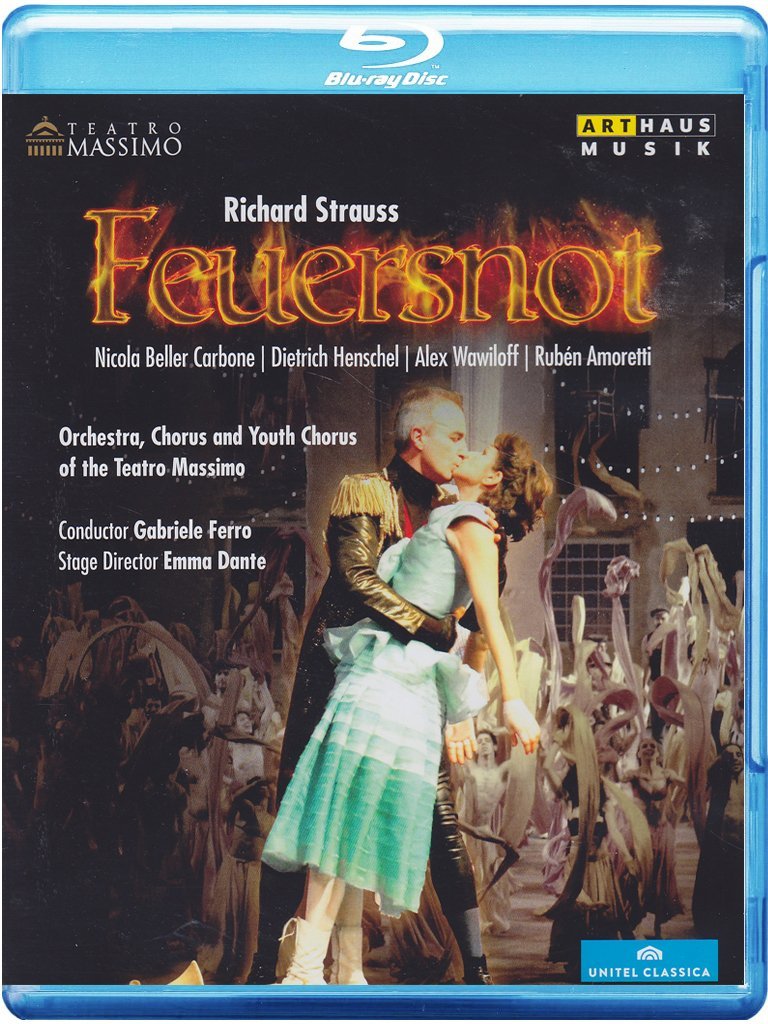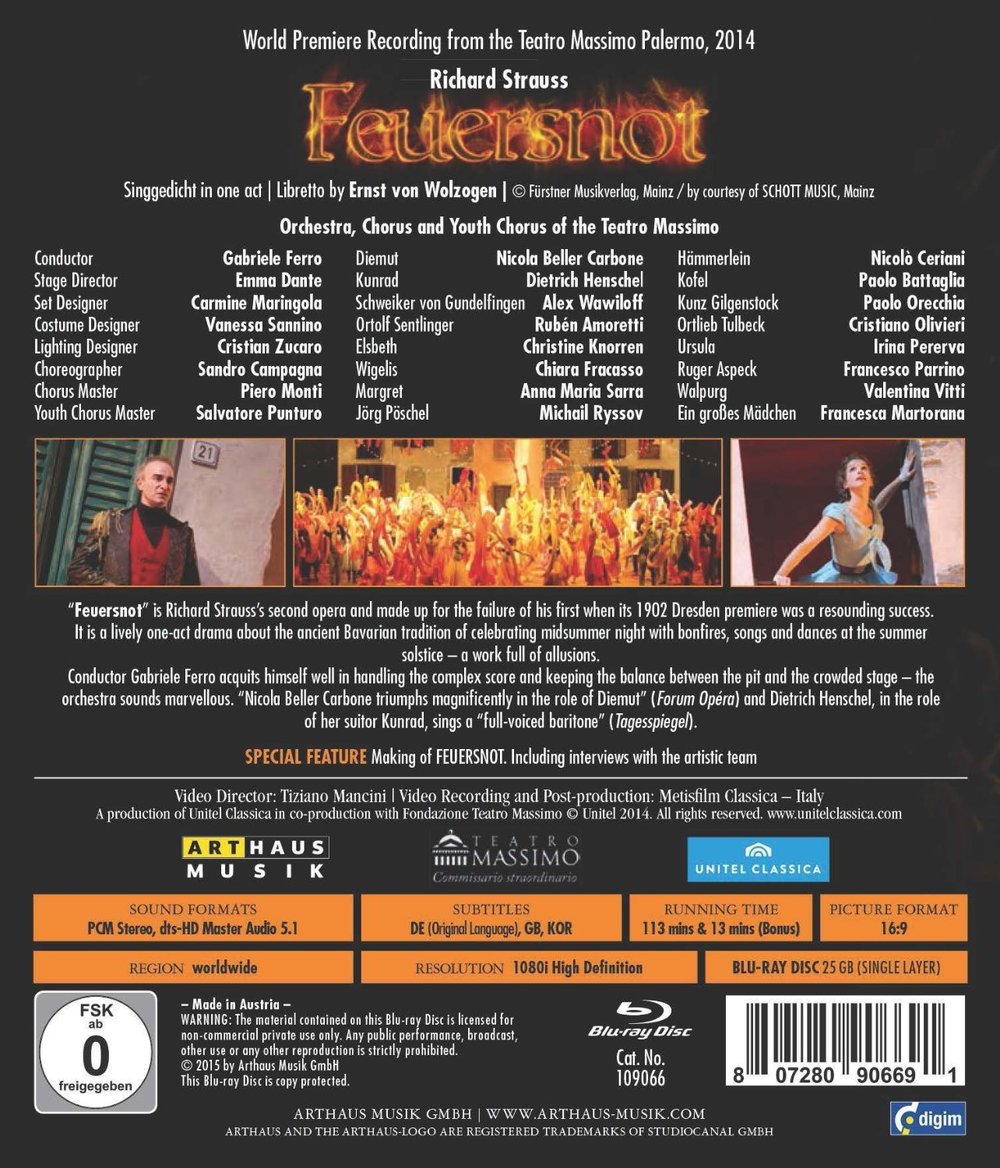

Richard Strauss Feuersnot opera to a libretto by Ernst von Wolzogen. Directed 2014 by Emma Dante at the Teatro Massimo Palermo. Stars Nicola Beller Carbone (Diemut), Dietrich Henschel (Kunrad), Alex Wawiloff (Schweiker von Gundelfingen), Rubén Amoretti (Ortolf Sentlinger), Christine Knorren (Elsbeth), Chiara Fracasso (Wigelis), Anna Maria Sarra (Margret), Michail Ryssov (Jörg Pöschel), Nicolò Ceriani (Hämmerlein), Paolo Battaglia (Kofel), Christiano Olivieri (Ortlieb Tulbeck), Irina Pererva (Ursula), Francesco Parrino (Ruger Aspeck), Valentina Vitti (Walpurg), and Francesca Martorana (Ein großes Mädchen). Gabrielle Ferro conducts the Orchestra, Chorus and Youth Chorus of the Teatro Massimo (Chorus Master Piero Monti; Youth Chorus Master Salvatore Puntero). Set designs by Carmine Maringola; costumes by Vanessa Sannino; lighting by Christian Zucaro; choreography by Sandro Campagna. Directed for T V by Tiziano Mancini. Sung in German. Released 2015, disc has 5.1 dts-HD sound. Grade: NA
Strauss considered this his second opera, but it's not even mentioned in my Groves Book of Operas. There are 3 CDs of the music, and subject title is, it seems, really the first Feuers-not video ever published! The name in German is one of those odd words that has simultaneous opposite meanings (like "cleave" in English can mean "to adhere to tightly" or to "chop apart"). The more common meaning of "Feuersnot" is "peril by fire" or "conflagration." But "Not" in German mean "lack of" so here "Feuersnot" means "lack of fire." According to Wikipedia, the aim of Feuersnot is to neutralize Wagner's theme in Tristan and Isolde of redemption through love with Strauss's theme of "redemption through sex." This was controversial in 1901 when Strauss premiered it, and there were problems with censors.
Hugo Shirley, writing in the August 2015 Gramophone (page 91) says that videographer Tiziano Mancini is forced by the busy book for this production to jump around too much, which results in viewer fatigue. If a print reviewer observes this, the hyperactivity must be really bad—or maybe really good! David J. Baker, writing in the October 2015 Opera News (pages 67-68) says that director Emma Dante "relies on generalized mood, a collective Dionysian frenzy . . . acted out relentlessly by the hipster corps de ballet in various stages of undress." H'm, maybe we need to put this on our buy list! In any event, thanks to all you folks in Sicily for bringing this work to our attention.
OR
